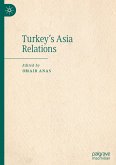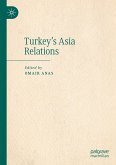This book offers a useful and extensive account of Japan's past discoveries and present interactions with Muslim states and societies across Asia. Bearing in mind the U.S.-led global meta-narrative of Islam spoken in tandem with security and threats, this book examines how this reconciles with Japan's self-proclaimed "values-based" approach to diplomacy across Asia in the twenty-first century. The author considers Japan's historic conceptualization and learning of Islam, and its acute needs for access to markets and energy from Muslim-majority states in Asia. He also argues that Japan securitizes Islam in a manner distinct from Western, Russian, or Chinese securitization today, but that Japan promotes itself as a model for human security and development across an Asia inclusive of Muslim states. Japan's approach to Islam and Muslim societies today offers much from which other great powers can learn.
"Japan's Relation with Muslim Asia touches on important points in Japan's strategies toward Muslim-majoritystates in different dimensions, its 'unique' approach to the securitization of Islam may not be clear. The book is an attemptto add a new and fresh perspective to the existing literature. Its diverse, multi-language references will open many paths for furtherresearch on this topic. ... this book is a must-have for anyone interested in Japanese-Muslim relations." (Mustafa Onur Yalçin, Insight Turkey, Vol. 23 (2), 2021)








